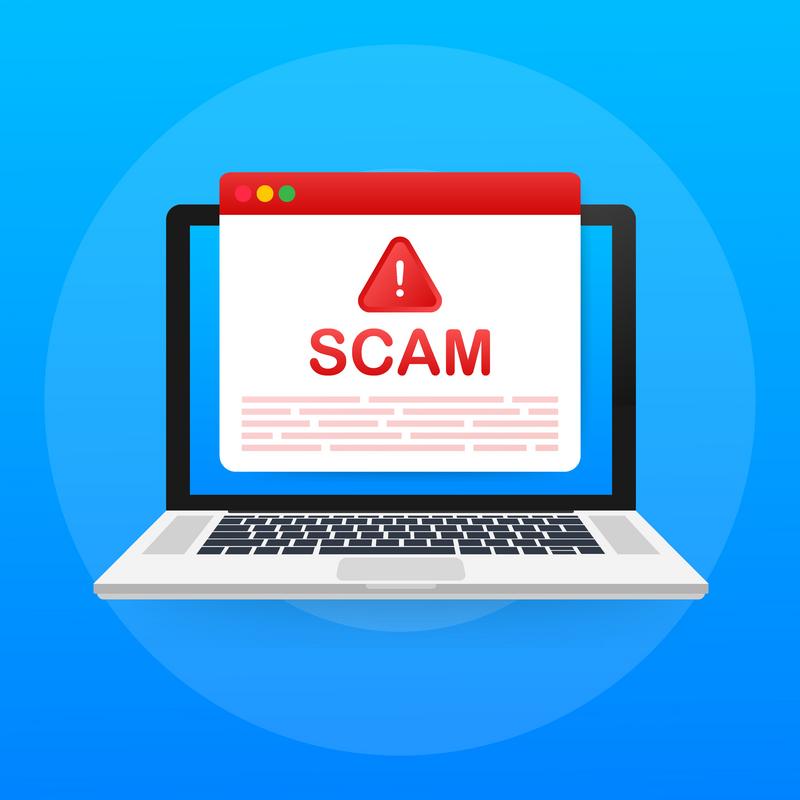As a student, you will find that there are countless organizations and individuals who are willing to work hard to help you pay for school; but unfortunately, there are a few out there who will take advantage of you through scholarship scams.
When it comes to searching for scholarships and applying for financial aid and colleges, you have to know a scam from a legitimate resource. Safe-guard yourself and your finances by becoming aware of scams that commonly target students. Use the following tips to learn how to spot scholarship scams:
Never pay to apply for scholarships.
Legitimate scholarship providers don’t want – or need – your money. They want to help students attend school, not profit off of you! If a scholarship is asking any sort of fee to apply, then it’s likely not a legitimate opportunity.
Similarly, other
scholarship red flags to beware of when it comes to scholarship offers are:
•
Guarantees – Honest scholarship providers will never guarantee a scholarship – as good as it may sound, that’s not how it works.
•
Unsolicited offers – Scholarships are not just given to random students who haven’t applied and put forth effort into getting a scholarship.
•
Inquiry of private bank and/or social security information – While scholarship applications may require a degree of personal information, they will never ask for your social security number or bank account information. If they do, it’s likely not a valid opportunity and you should never oblige.
•
No contact information – Real scholarship providers have people you can contact in order to ask questions. If you cannot find any contact information, it should raise a red flag.
•
Where are the winners? – Genuine scholarships have been awarded to previous applicants. If it’s legitimate, where are the past recipients?
•
Act NOW! – While scholarships do have deadlines, legitimate providers will never give you “now or never” ultimatums.
NOTE: As a leading scholarship database, Fastweb screens all of the scholarships available on the site and does not charge anything for its services.
Filling out the FAFSA is free – don’t let anyone tell you otherwise.
Financial aid that comes from the government will be awarded in forms like grants and loans. To apply for government aid, you must fill out a
FAFSA (Free Application for Federal Student Aid) each year – note the word “free” in the title.
If you’re being asked to pay in order to fill out the FAFSA, you’re likely on the wrong website and that website is probably scamming students. Here is the correct link for students looking to fill out a
FAFSA application.
Be suspicious of large bank fees.
Trustworthy banks giving legitimate loans usually do not ask students to pay large fees for taking out loans. If the fee seems unreasonable or the deal seems too good to be true (like a huge fee in exchange for an extremely low interest rate), it likely is.
Be sure to work with a reputable bank and ensure you understand all fees and rates before signing anything.
Never pay a deposit on an apartment or residence you haven’t seen in person.
While this may seem like common sense, it is all too common, especially for international or out-of-state students.
Students will submit a deposit immediately – not wanting to miss out on a great housing offer – only to find out on arrival that the residence doesn't actually exist. Ensure you or a friend actually visits the property in person before submitting payment in any form.
Beware of telephone and internet scams.
No matter how legitimate a telephone or online inquiry may seem, it’s important to keep in mind that legitimate organizations, as well as the government, will never ask for information regarding your bank account, passport or social security card online!
This type of scam seems to be especially targeted toward international students, who may become confused or unsure of the situation when student visas or immigration is mentioned.
Remember, the government will never ask you to wire money or immediately make payments for any student-related items. Do not let anyone scare you into believing otherwise!
If you’re really unsure, ask for the person’s contact information and call the government agency or a school advisor to verify the legitimacy of the request. More often than not, they will recognize the inquiry as a scam.
If it seems too good to be true, it probably is.
This is especially true when it comes to your finances. If you have been contacted for or been victimized by a student scam or fraudulent offer, don’t be afraid to report it!
You can report such incidents to your state’s department of consumer protection, your state attorney general or the
National Consumer League’s Fraud Center. Creating such reports will help prevent other students from falling prey to the same opportunists.
Avoid scholarship scams with scholarship smarts.
Because of public social media profiles and third party data providers, it’s actually very easy for a scholarship scammer to get your email address or phone number. For that reason, you must be alert to the fact that this could happen. Remember, if anyone ever reaches out to you, it’s likely not a legit opportunity.
At the same time, there are safe spaces for you to conduct your scholarship search and apply for financial aid. At
Fastweb, we have a dedicated team of individuals who validate every scholarship opportunity on our website in order to help our users avoid scholarship scams.
The federal government guarantees the protection and privacy of users when applying for the FAFSA as do state governments and colleges and universities.
Use common sense throughout the process. Trust your gut. And if something ever seems sketchy, stop giving your information and start asking questions.
Have you been targeted for a student scam? How did you handle it?

